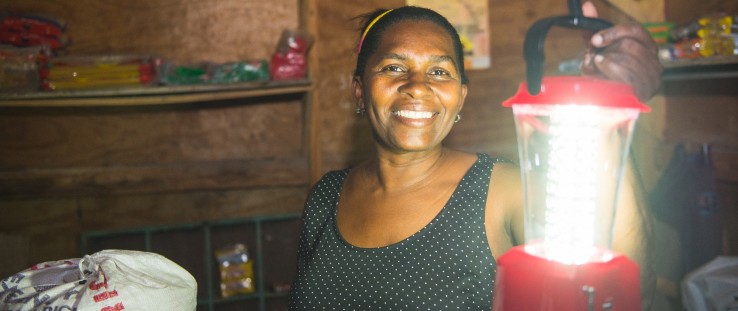 “Before I had the lamp, it was so dark,” said Nancy Goldman. “The lamp creates an amazing bring light, which attracts customers.”
Tara Etienne Levros
“Before I had the lamp, it was so dark,” said Nancy Goldman. “The lamp creates an amazing bring light, which attracts customers.”
Tara Etienne Levros
 “Before I had the lamp, it was so dark,” said Nancy Goldman. “The lamp creates an amazing bring light, which attracts customers.”
Tara Etienne Levros
“Before I had the lamp, it was so dark,” said Nancy Goldman. “The lamp creates an amazing bring light, which attracts customers.”
Tara Etienne Levros
Nancy Goldman, a 40-year-old single mother, lives in a very modest house with her mother, father, sister and 8-year-old daughter, Phaïma, in the Delmas neighborhood in Port-au-Prince, Haiti.
During the January 2010 earthquake, Goldman’s home was badly damaged and since then it has been a constant struggle for her to generate the income needed to fix it. To support her family, Goldman attached a tiny shop to the house that is bursting with boxes, basic food products and other household goods.
“I sell all sorts of items, like chocolates, canned food and cooking oil. But it doesn’t bring me much money; if I’m lucky, it’s about 50,000 gourdes [$800] in a year,” she explains. “It’s enough to survive, but not enough to live.”
In May 2016, things changed when Goldman applied to become a sales agent for solar lights and received her first consignment. A consignment arrangement allows an agent to pay a supplier for the lanterns after selling them, which allowed Goldman to acquire more lamps than she could otherwise afford to buy upfront with cash.
“I needed money to rebuild my house. Becoming an agent for solar products offered me that opportunity. It has completely changed my life,” she said. “I was given the consignment level [of] 15,000 gourdes [$230], which means that I can get eight or 10 solar lanterns at a time to sell.”
Roughly 26 percent of Haiti’s population is connected to the electrical grid, and most of those households are lucky to get a few hours of electricity a day. Goldman’s family was no different. They relied on kerosene and candles for lighting due to the daily power outages. That is, before they acquired one of the solar lanterns to light their home.
The lanterns are supplied by Sogexpress, the largest money transfer organization in Haiti, which also is working to increase Haitians’ access to clean energy through its Klere Ayiti (Light Up Haiti) initiative.
Klere Ayiti enables Haitians abroad to finance solar devices through remittances. At the same time, Sogexpress is encouraging domestic sales by integrating solar products into its storefronts and agent network. With the support of USAID’s Renewable Energy Microfinance and Microenterprise Program, Sogexpress developed the consignment program. Already more than 1,000 agents are earning income by selling solar light kits that also let users charge their mobile phones, and around 800 have qualified to sell on consignment.
Over the past three years, over 86,000 of these solar products have been sold in Haiti, bringing light to some of its most impoverished communities.
“I sell solar lights from my shop, and even sometimes take them to show people. I sold six in my first month,” Goldman explained. “But I could never afford to buy this many in advance, so it was very important that Sogexpress could give them to me on consignment.”
“Solar lamps make it possible for people to conduct business, do tasks at home, and have enhanced security after sunset,” said Mahmoud Mir, USAID’s energy adviser in Haiti. To improve the availability of power in off-grid communities, USAID is also supporting two renewable energy projects to provide a mix of solar and diesel power to communities in southern Haiti.
Brighter Opportunities
“Nancy’s story is one of many that illustrate how the incomes and quality of life of small entrepreneurs can be dramatically improved through solar products,” said Dominique Policard, executive director for commercial affairs at Sogexpress.
In fact, Goldman’s solar sales have steadily grown to be a significant part of her business. She now sells about 15 lamps and 50 “magic bulbs”—a basic low-wattage LED light bulb with rechargeable solar cells that provides light when the electricity fails—per month. “I have used the extra money for rebuilding work, but also for school fees for Phaïma,” Goldman says. And she enjoys the benefit of reliable solar light herself.
“Now we always have good light in our home. This has helped us keep active after dark, and it’s also so much safer for my daughter,” she said. “I display several of the lamps in front of my shop at night. Before I had the lamp, it was so dark. The lamp creates an amazing bright light, which attracts customers.”
By the end of 2016, Goldman had nearly reached her goal. She has school fees for her daughter and her home is almost rebuilt.
Yara Akkari is with Arc Finance, implementer of the Renewable Energy Microfinance and Microenterprise Program.








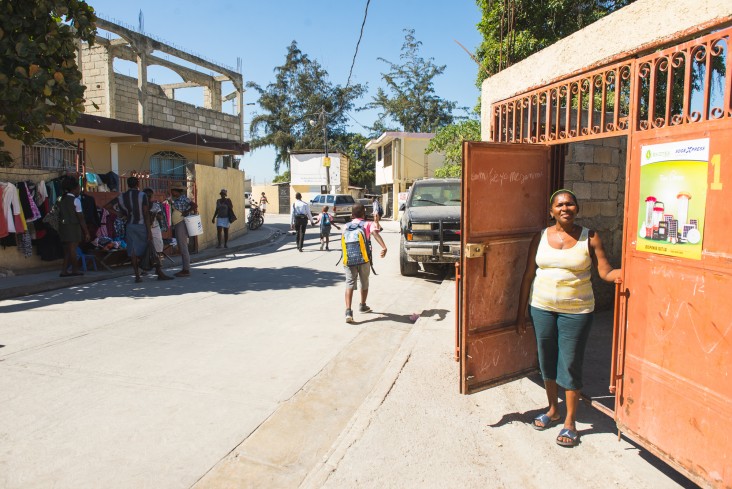
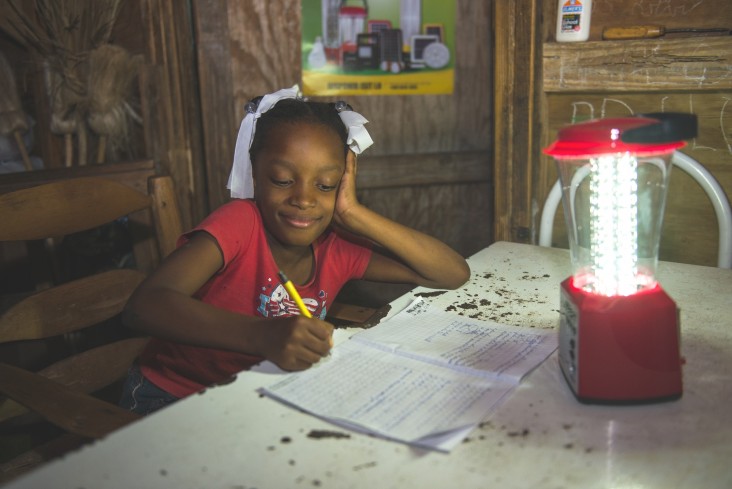
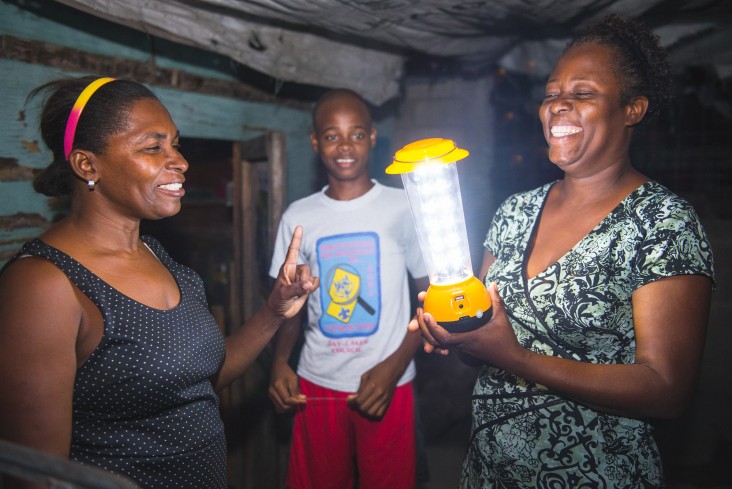
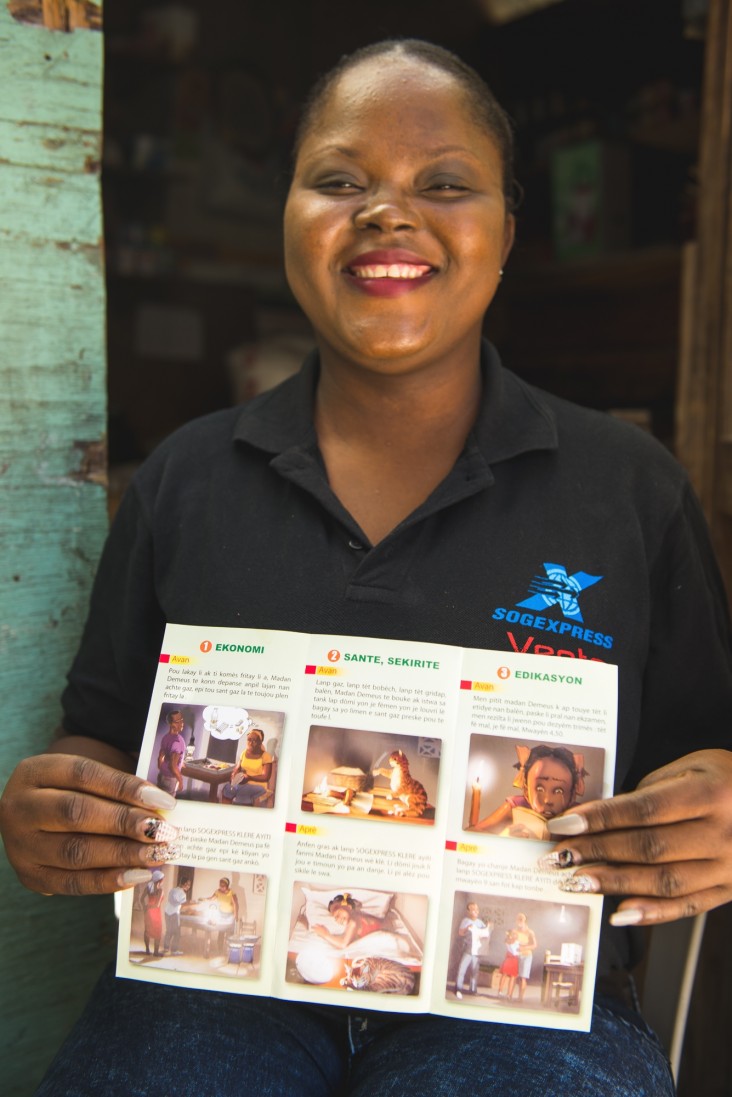
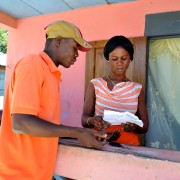

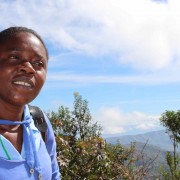
Comment
Make a general inquiry or suggest an improvement.